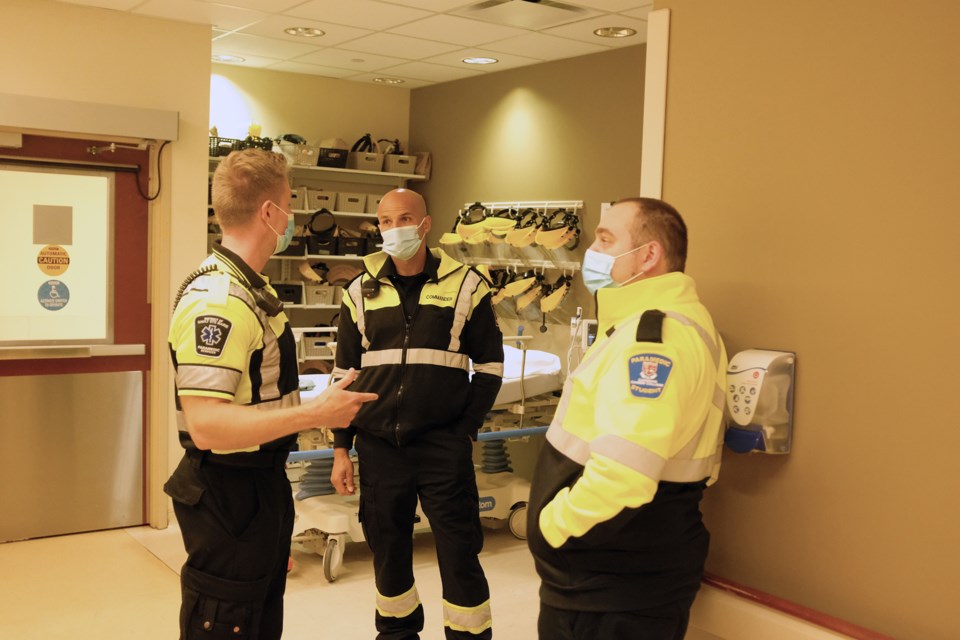After months of lobbying the provincial government for some relief in response to the hundreds of hours local paramedics spend stuck in the hospital’s Emergency Department on offload delay, a significant amount of funding has been committed to combat the issue.
In August, paramedics with the Sault Ste. Marie Paramedics Services spent an average of more than 13 hours at Sault Area Hospital waiting to offload patients to the care of Emergency Department staff, totalling 383 offload delay hours for the month.
Those totals are actually an improvement over the same month in 2022 when more than 16 hours a day were averaged and 510 total hours were spent in offload delay.
While on offload delay, paramedics are generally not able to respond to other calls for service and patients are not able to be treated by hospital staff until they are fully handed over.
“There has been some improvement and we hope that it’s starting to head in the right direction,” said Katie Kirkham, chief of Paramedic Services, during Thursday’s meeting of the local Social Services administration board.
In her report, Kirkham said those offload delays cause significant financial implications for the service that is difficult to fully calculate, including forced overtime, missed meal breaks and up-staffing of additional paramedic units to meet community emergency response needs.
Kirkham said the service has recently received confirmation that the Ministry of Health will fund a dedicated offload nurse to accept patients sooner and allow the paramedics to get back on the road. That $530,816 in one-time funding for the 2023/24 fiscal year will allow offload nurse coverage seven days a week, said Kirkham.
“We plan to have two nurses covering seven days a week, but they won’t be over a whole 24-hour period because that’s not where we see the offload delays,” said Kirkham. “That will help us to get ambulances back out in the community to provide emergency care, where they are needed the most.”
The program will be operated jointly by the paramedic services and the hospital.
Kirkham said details are currently being hashed out with hospital administration on how best to operate the program and not allow the hospital to reabsorb those offload nurses into its nursing staff for other tasks.
“That’s the agreement we are working on, so that doesn’t happen,” she said.
Although the dollars announced so far are part of a one-time funding pot for paramedic services across the province, Kirkham said she hopes to see it extended into the future.
“We expect they will continue the funding and it will possibly become base funding,” she said.
Additionally, the service is working closely with Sault Area Hospital to develop a mutually agreed-upon escalation process to deal with acute offload situations to further reduce the time paramedics spend in offload delay.
